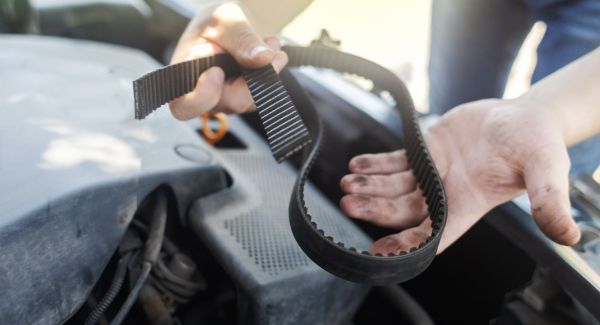What You Need to Know About Belt Repair and Replacement
When it comes to your vehicle’s performance, the belts under the hood play a bigger role than most drivers realize. Whether it’s the serpentine belt, timing belt, or accessory belts, each one helps power crucial systems that keep your car running smoothly and efficiently. Ignoring belt repair and replacement can lead to costly engine damage and breakdowns, but with a little knowledge, you can stay ahead of problems.
What Do Belts Do in Your Vehicle?
Belts are the unsung heroes of your vehicle’s engine bay. While they might seem like simple rubber loops, they’re essential for transferring mechanical power and keeping multiple systems running smoothly. Here’s a closer look at the most important belts and how they support your car’s overall performance:
1. Serpentine Belt (Drive Belt)
The serpentine belt is one of the most critical belts in modern vehicles. It's a long, continuous belt that "snakes" around several pulleys and drives multiple components. These include:
- Alternator – Keeps your battery charged and powers your electrical systems.
- Power Steering Pump – Provides the hydraulic pressure needed for easy steering.
- Air Conditioning Compressor – Powers your A/C system for climate control.
- Water Pump (in some engines) – Helps circulate coolant through the engine, preventing overheating.
If the serpentine belt breaks or slips, your vehicle can quickly lose power steering, overheat, or shut down due to electrical failure.
2. Timing Belt (or Timing Chain)
The timing belt is an internal engine component that keeps the camshaft and crankshaft synchronized. This synchronization is vital because:
- The crankshaft controls the engine's pistons.
- The camshaft controls the engine’s valves.
The timing belt ensures that the valves open and close at the precise time during the piston’s stroke. If this timing is off—even slightly—it can cause misfiring, engine damage, or total failure, especially in interference engines where the valves and pistons occupy the same space at different times.
3. Accessory Belts (V-Belts in Older Vehicles)
Before serpentine belts became the standard, older vehicles used multiple V-belts to run individual components. You might find:
- A belt for the alternator
- A separate belt for the A/C compressor
- Another belt for the power steering pump
Even though it’s less common in today’s vehicles, some older or heavy-duty vehicles still use this setup. These belts must also be inspected and maintained regularly.
Signs Your Vehicle Needs Belt Repair or Replacement
Your belts won’t last forever. Here are common warning signs you might need belt repair or replacement:
- Squealing or chirping noises from under the hood
- Cracks, fraying, or glazing on the belt surface
- Power steering failure or battery warning light
- Engine overheating
- Rough engine performance or misfiring
If you notice any of these symptoms, don’t wait. A failed belt can cause immediate damage to other parts of your vehicle, especially in the case of a broken timing belt.
Common Misconceptions About Belts
There’s a lot of confusion about what belts do and when they need attention. Let’s clear some of that up:
“If it’s not broken, don’t fix it.”
Belts often show wear before snapping. Waiting too long could leave you stranded or cause engine damage.
“Belts last forever.”
Even high-quality belts wear out due to heat, friction, and age. Most should be inspected regularly and replaced every 60,000 to 100,000 miles depending on the type and manufacturer recommendations.
“I just had an oil change, so everything's good.”
Oil changes don’t always include a belt inspection. Be sure to ask your technician to check them if it hasn’t been done recently.
Why Timely Belt Service Matters
Preventive maintenance is the best way to avoid expensive repairs down the road. Regular inspections and timely belt replacement not only help you avoid breakdowns but also protect your engine and other major components. Our certified technicians use professional diagnostic tools to inspect for signs of wear and ensure your belts are properly tensioned and aligned.
Schedule Belt Repair and Replacement at Knight's Automotive Today
If you’re hearing strange noises or haven’t had your belts checked in a while, now’s the time. Don’t wait until a worn belt sidelines your vehicle. Contact our auto repair shop to schedule a belt inspection, repair, or replacement and drive with confidence knowing your vehicle is in peak condition.

